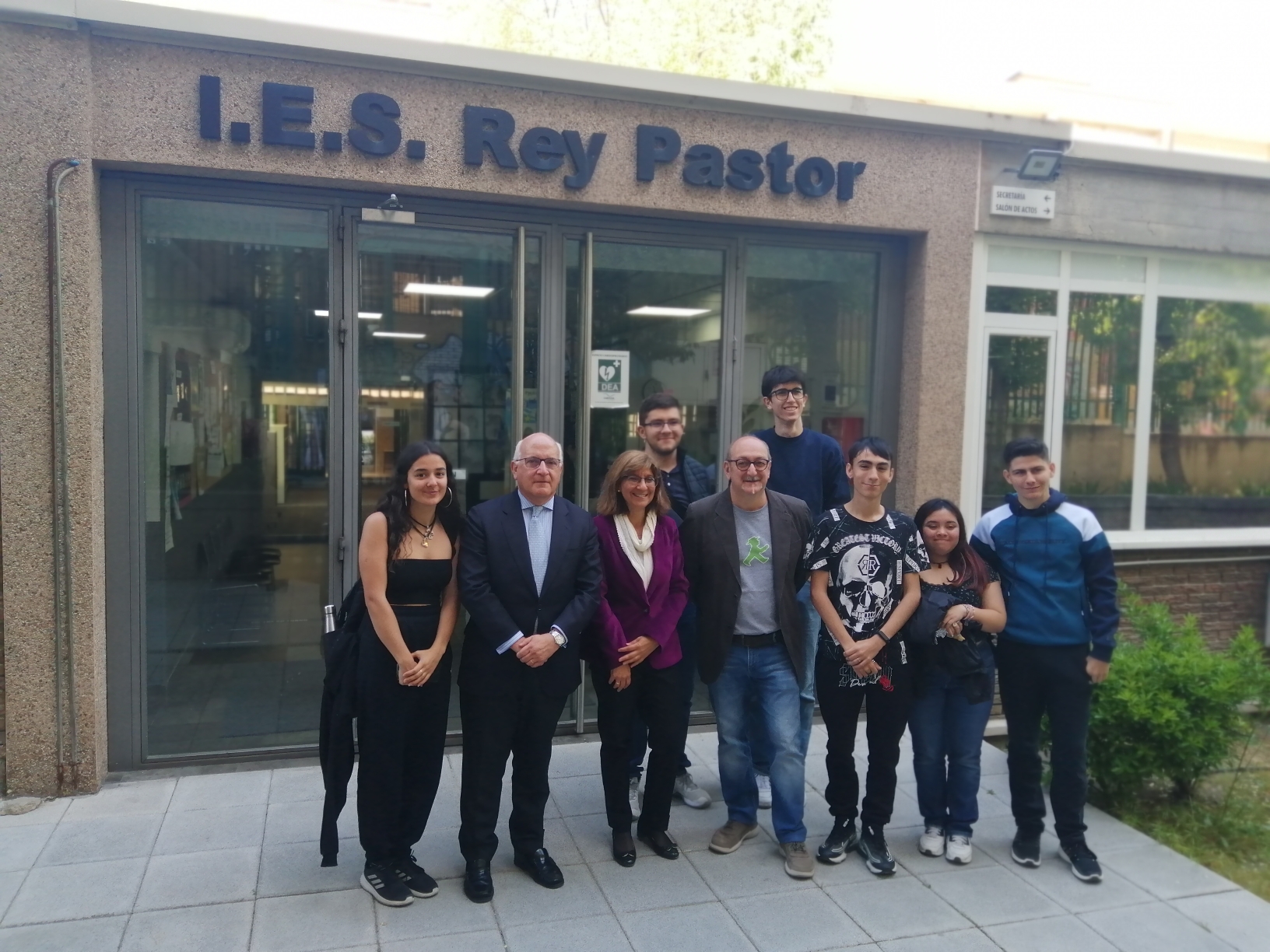ZARZALEJOS GIVES A TALK ON THE EUROPEAN UNION AT I.E.S REY PASTOR IN MADRID

On April 21, Javier Zarzalejos visited the Rey Pastor Secondary School in Madrid, invited to give a talk on the European Union to students in the first and second years of Bachillerato, and to students in the fourth year of ESO who are taking the European Union course at the school.
Zarzalejos began his speech by welcoming the growing interest in European institutions in the educational system. He reminded the audience how Europe is already their professional and personal future. The MEP brought the knowledge of the Community institutions closer to the audience by focusing on issues in which European policies have a more visible impact. Thus, he pointed out that “Europe means concrete things”: the ‘Erasmus’ programs, vaccines, freedom of movement, the single currency, a justice system capable of protecting European consumers, for example, in mortgage matters. He alluded to the dimension of problems that “leave the nation state too small” to solve them and appealed to the need to “solve them jointly”.
Zarzalejos illustrated the need for integrated policies by recalling the European response to the pandemic and the invasion of Ukraine: the 75 billion euros mobilized for the States to transform their economies into more resilient systems incorporated into the knowledge society; and he pointed out that this was done through a continent-wide indebtedness that will be paid off in 2050 and from which Spain is the most benefited country.
In the face of criticism and failures that must be acknowledged, Zarzalejos also recalled that Europe means “European citizenship, peace and prosperity”, recalling -in a brief historical review- the origins of European construction from the first treaties on coal and steel, the CAP, or the cohesion funds. He did not forget the more political dimension of the Union and its stabilizing role both in Spain itself and in Eastern Europe.
In the chapter on the challenges facing the EU, Zarzalejos addressed the war in Ukraine, “a war in Europe, rather than at the gates of Europe”, the loss of competitiveness caused by the overlapping of successive crises, indebtedness or the environmental challenges that require us to decarbonize our economies, or the challenge of new technologies and the emergence of internal antagonists in the form of populist movements and competitors and geostrategic rivals abroad such as China or Russia.
The talk was followed by a colloquium in which the students showed their interest in the work of the MEP in the parliamentary committees of which he is a member and which allowed them to address issues such as Russian interference in European electoral processes or the fight against sexual abuse on the Internet.
